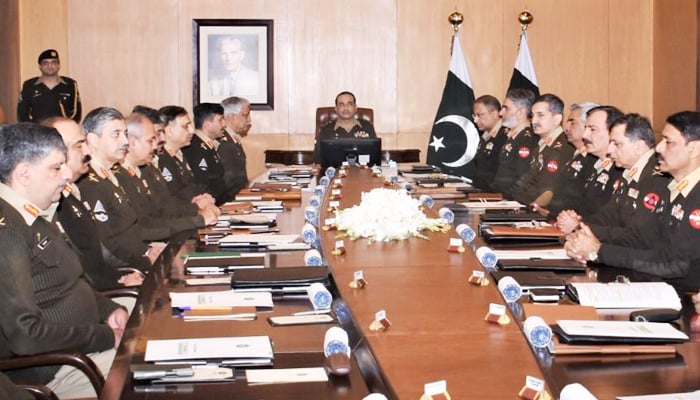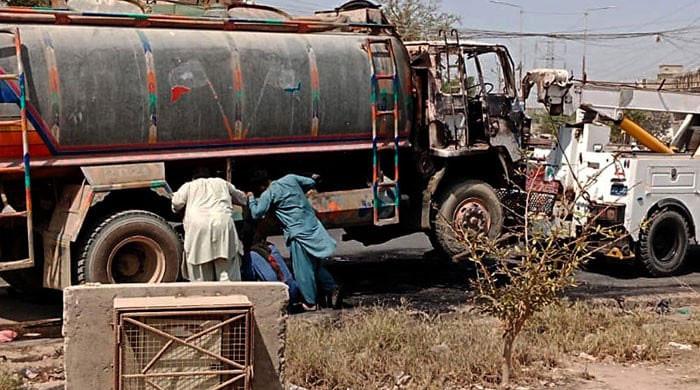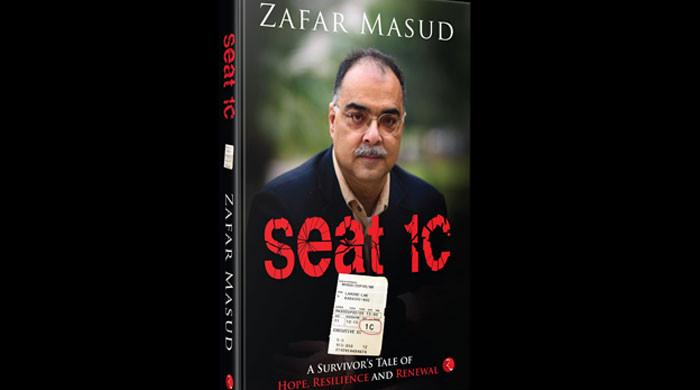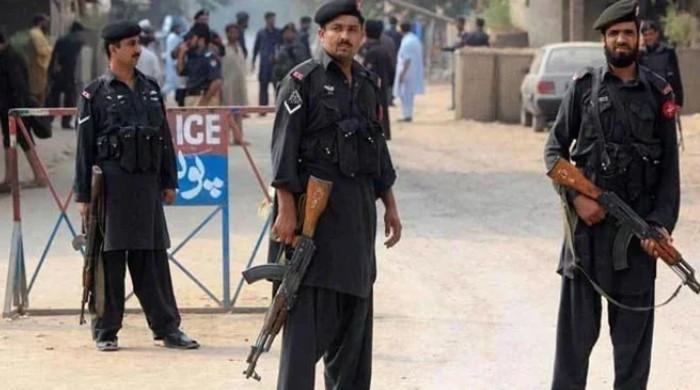Gen Asim says 'cowardly acts' can’t shake zero-tolerance policy against terrorism
Perpetrators of Peshawar blast to be brought to "exemplary justice", army's top brass vows
January 31, 2023

- Peshawar blast perpetrators to be brought to book, CCC vows.
- COAS wants commanders to focus on anti-terrorism operations.
- Forum also briefed about ongoing situation in occupied Kashmir.
RAWALPINDI: Chief of Army Staff (COAS) General Asim Munir said Tuesday that the Peshawar mosque suicide blast — that took at least 100 lives — could not shake the nation's zero-tolerance policy against terrorism.
The army chief's statement came as he chaired the 255th Corps Commanders’ Conference (CCC) at the General Headquarters (GHQ) a day after the suicide blast in Peshawar’s strictly-guarded Police Lines area.
The attack was the deadliest in a decade to hit the restive city near the Afghan border and comes amid a surge in violence against law enforcement agencies. The Tehreek-e-Taliban Pakistan (TTP) claimed responsibility for the blast.
"Such immoral and cowardly acts cannot shake [the] resolve of the nation [but] rather reinvigorate our determination to succeed in [the] ongoing war against terror with zero tolerance for any terrorist entity," he said.
The conference, presided over by the army chief, was briefed in detail about the ongoing intelligence-based operations being undertaken by the army and law enforcement agencies (LEAs) for breaking the nexus between terrorists and their support mechanism across the country.
The top army brass also paid rich tributes to the martyrs of the Peshawar Police Lines blast and vowed that perpetrators will be brought to "exemplary justice".
While addressing the meeting, the COAS directed all the commanders to continue to focus on anti-terrorism operations in coordination with intelligence and LEAs with "renewed resolve till the time we achieve sustainable peace".
Top political leadership has also called for a consensus to launch a nationwide operation for rooting out terrorism and nipping it in the bud before the country goes back to the era when daily blasts were a routine.
“Our desire to be an instrument of superpowers is very old. Pakistan is alone in the war against terrorism,” Defence Minister Khawaja Asif told the National Assembly earlier today, as he called for an operation like Zarb-e-Azb to counter terrorism.
Over the first year of Taliban rule in Kabul, attacks spiked by 50% in Pakistan, mostly along the western provinces bordering Afghanistan, according to the Pak Institute for Peace Studies (PIPS).
Islamabad has also accused the Taliban in Kabul of failing to secure its borders and allowing militants inside Afghanistan to plan attacks against Pakistan.
But the defence minister stressed that instead of blaming neighbouring nations, it was crucial that "Pakistan does introspection and self-accountability".
During the 255th CCC, the forum was also briefed about the prevailing and emerging threats and the situation in the Indian Illegally occupied Jammu and Kashmir (IIOJK).
The forum, taking notice of human rights violations and Indian design to alter the demographics of IIOJK, reaffirmed the army’s commitment to Pakistan’s principal support to the indigenous freedom struggle of brave Kashmiri people as per relevant UN resolutions.











